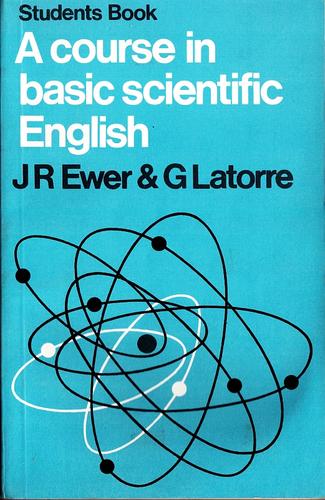
Book Details
A Basic Course in English
J R. Ewer
Summary
PURPOSE AND SCOPE OF THE COURSEThe purpose of this course, as its title indicates, is to teach students of scientific subjects (including medicine, engineering and agriculture) the basic language of scientific English.
PURPOSE AND SCOPE OF THE COURSEThe purpose of this course, as its title indicates, is to teach students of scientific subjects (including medicine, engineering and agriculture) the basic language of scientific English. This basic language is made up of sentence patterns, structural (functional) words and non-structural vocabulary which are common to all scientific disciplines and form the essential framework upon which the special vocabulary of each discipline is superimposed. Once this basic language has been mastered— together with the principal word-building devices (prefixes and suffixes) also presented in this book—the acquisition of these special vocabularies presents very little difficulty, since they are mainly international words and therefore very similar to those already used in the student's own language.The material incorporated in the course has been selected, for the most part on a frequency basis, from the scrutiny of more than three million words of modern scientific English of both American and British origin. This sample covered ten broad areas of science and technology (physics, chemistry, biology, geology and geomorphology, medicine, engineering, sociology, economics, psychology and agriculture) and represented the types of literature likely to be consulted by students or graduates of science—university textbooks, professional papers and articles, scientific dictionaries and semi-popularizations. Whilst the principal criteria for the inclusion of items were frequency and range, a certain amount of material was selected for other reasons, e.g. because of their usefulness as describers or definers, because they were members of a group or set, or because, though not unduly frequent, they were essential or non-substitutable (as is the case with the Present Continuous tense, for example).
Highlights
- By J R. Ewer
Details
- ISBN: 0720209498
- Author: J R. Ewer
- Condition: Used – Very Good
- Rating: 0.00
Reviews
Average rating: 0.00/5 · 0 reviews

Best Sellers
- Choosing a selection results in a full page refresh.
- Opens in a new window.




